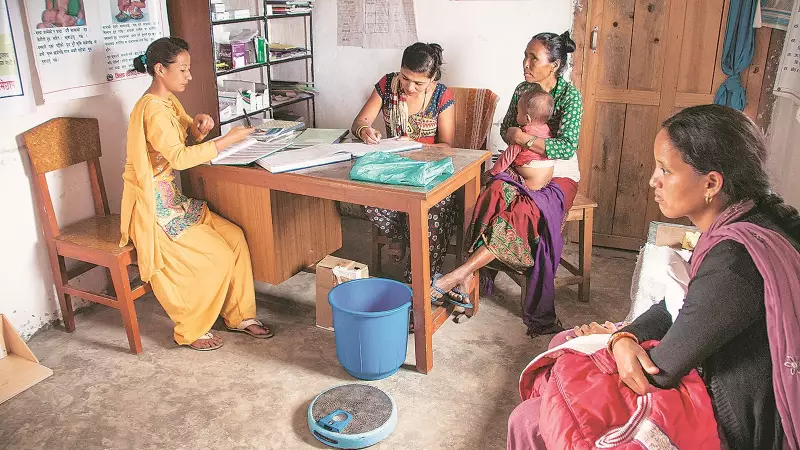
In a stark revelation that highlights a critical public health challenge, maternal undernutrition in India continues to affect millions, with approximately 18.7 per cent of women being underweight and a staggering 57 per cent in the reproductive age group suffering from anaemia. This issue, brought to light by Dr Ambrish Mithal, Chairman of Endocrinology at Max Healthcare, underscores a silent crisis where women may be consuming calories but are severely lacking in essential vitamins and minerals.
The Hidden Hunger Epidemic
Dr Mithal explains that this phenomenon, often termed 'hidden hunger,' is particularly dangerous. "Women often carry nutritional deficits into pregnancy and those deficits are then passed on to the child," he states. This isn't just about insufficient food intake; it's about the quality of nutrition. A diet lacking key micronutrients like iron, folate, B12, vitamin D, and iodine makes pregnancy significantly riskier.
The consequences are severe and far-reaching, leading to:more infections, preterm births, and low birth-weight babies. Furthermore, poor foetal nutrition can blunt a child's cognitive and physical potential and even impact their metabolism, raising the risk of diabetes and heart disease in their later life.
A Doable Diet for Mothers
So, what is the solution? Dr Mithal provides a clear, actionable blueprint for maternal nutrition. First and foremost, he emphasizes the importance of a varied plate every day. This should consistently include:
- Green leafy vegetables
- A good source of protein such as milk, eggs, fish, meat, or pulses
- Fresh fruit
- A small portion of whole grains or millets
Secondly, he stresses the need for early registration for antenatal care, adherence to prescribed iron-folic acid and calcium supplements, and deworming where necessary. A practical tip he offers is to combine vitamin-C rich foods with iron-rich meals to enhance absorption, such as adding a squeeze of lemon to spinach.
Dr Mithal also highlights that nutrition is often decided at the household level, making the involvement of the entire family crucial for bringing about a positive change.
Navigating Weight Gain and Anaemia
Gestational weight gain is described as a 'Goldilocks problem.' Gaining too little weight poses a risk of foetal growth restriction, while gaining too much leads to delivery complications and long-term metabolic risks for both mother and child. Dr Mithal identifies the common missteps that lead to excessive weight gain, which include the pervasive 'eating for two' myth and diets high in refined carbohydrates, sugar, and unhealthy fats.
The conversation then turns to the persistent issue of anaemia, which affects over 50 per cent of pregnant women in India. Despite supplementation programs, anaemia rates have not decreased as expected. Dr Mithal points out that the solution is not a single pill. Factors like low pre-pregnancy haemoglobin, erratic adherence to supplements due to side-effects, and supply gaps all contribute to the problem.
To make a real difference, he asserts that we must shift our perspective. "Anaemia is not just a pregnancy problem," he says. Screening and treating girls and women of reproductive age long before conception are crucial. He also recommends broadening the diagnostic approach to check for B12/folate deficiencies and inherited blood disorders in high-prevalence areas.
This critical analysis, part of a collaborative awareness campaign between The Indian Express and Global Health Strategies, serves as a urgent call to action to break the intergenerational cycle of malnutrition and stunting in India.





